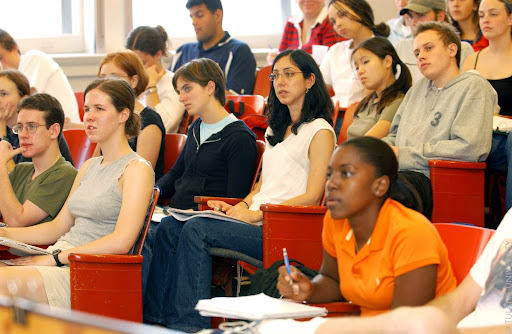Guilfordians continuing to change community, world
According to “Funders and Founders,” we each meet about 800,000 people during an average lifetime of 78.3 years.
From that large number, only a small group will impact our lives. They will change the way we see the world and our role in it.
In my personal experience, that small group has consisted of Guilfordians. They are students, staff, faculty and alumni from Guilford College who have a passion for changing the world.
Guilfordians are those you see participating in multiple protests, calling out for equality or for the environment.
You also see them daily in apartment complexes, tutoring students from marginalized communities.
Most recently, I saw them wearing red T-shirts at a Greensboro City Council working session in early September. They were celebrating that the Council agreed to lobby on behalf of a bill in the North Carolina General Assembly to provide in-state tuition for all North Carolina graduates regardless of their legal status in the U.S.
When I was a junior in high school I saw Guilfordians trying to change the world in many ways. I wanted to become one of them. And I did.
I arrived at Guilford as a Bonner Scholar in the fall of 2013. Now I was able to be part of the large amount of initiatives that served our community. I was impressed, but skeptical at the same time due to the amount of initiatives.
As a first year, I did not understand how the Guilford community planned to change the world. In my eyes, they were doing too many things. Especially when trying to make an impact on education, which was my area of interest.
On one hand, the Multicultural Education Department was running a college access conference. On the other hand, the Bonner Center for Community Service and Learning was tutoring refugee and immigrant kids in apartment complexes. In the greater community, organizations run by Guilfordians such as the Americans Friends Service Committee were advocating for in-state tuition for undocumented students in North Carolina.
In my opinion, there was not a focus, or a strategic plan on how to implement systematic change. Every initiative seemed to be self-standing or one-time event. That was a problem to me. However, once I started to get more involved, I understood that was not the case.
The kids being tutored at the service sites were being prepared for college. Guilfordians were closing the learning gap that public schools fail to solve.
The college access conference was serving as a stepping-stone to get into college for the kids coming from the tutoring centers.
Lastly, AFSC was running public policy projects giving students opportunities to give back to their communities and create systematic change.
Guilfordians were meeting immediate needs such as closing learning gaps and teaching how to apply to college, while fighting for long term systematic change through public policy.
Many offices on campus such as the MED and the Bonner Center have been able to create synergy across the campus. However, we still have a long way to go.
In the next few weeks, I will write a series of articles to look at the existing collaboration within the Guilford community as well as collaborations that need to be built. I hope to give us a reflection of our work as we seek to make the world a better place.




